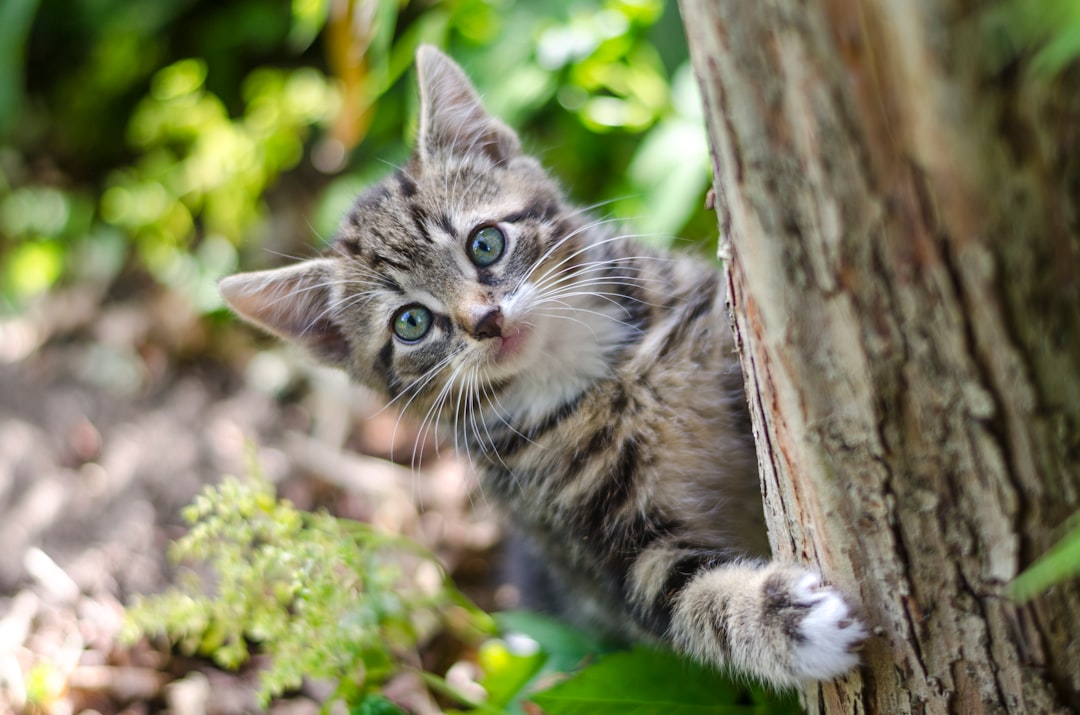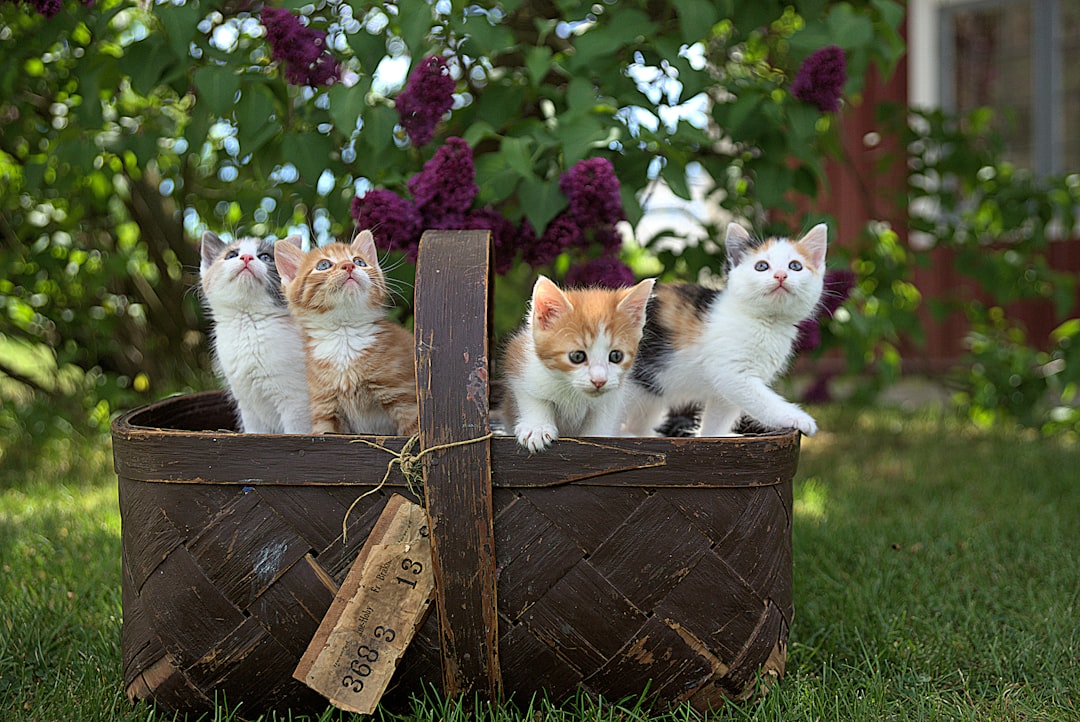So, you’ve just experienced that horrifying moment when you discover your feline friend has turned their litter box into a mini disaster zone. Yes, I’m talking about cat diarrhea! It’s messy, smelly, and frankly, a bit alarming. But don’t panic—every cat owner has been there, usually right after their furball discovered the joys of new food (or that mysterious thing they found in the backyard). Let’s dive into the common causes, symptoms, and, more importantly, effective treatment options to help your purring pal get back on track!
Understanding Cat Diarrhea and Its Implications

Ah, cat diarrhea! The gift that keeps on giving… unless you happen to be the cat owner! Understanding cat diarrhea isn’t just about cleaning up after your feline friend; it’s about deciphering the clues they leave behind.
When your kitty turns their litter box into a slip ‘n slide, it’s more than just a runny situation. Here are a few implications to keep in mind:
- Nutritional Knowledge: Cat diarrhea can signal that something’s off in your cat’s diet. Did you switch their food to “all-meat” instead of “all-meat-and-no-grain”? Well, you might want to reconsider your life choices!
- Health Risks: If your cat’s belly is on a rollercoaster of symptoms, it could indicate underlying issues. Think everything from infections to parasites — the ultimate uninvited guests!
- Hydration Necessity: Water is your best friend when dealing with cat diarrhea. Hydration matters because, unlike your cat, you don’t want to see your furry buddy turn into a withered cactus in the corner!
In short, don’t brush aside those messy moments too lightly. Understanding cat diarrhea is the first step in maintaining your cat’s health and your sanity!
Common Causes of Diarrhea in Cats

Ah, the mysteries of cat diarrhea! It can hit your feline friend faster than they can knock over a vase. But what causes this sudden, explosive situation? Let’s unpack some of the usual suspects:
- Dietary Changes: Your cat’s delicate stomach isn’t a fan of abrupt transitions. New food? Bad idea! Think of it as asking your cat to wear a tutu when they prefer a tuxedo.
- Food Intolerances: Cats can be picky eaters, and sometimes that kibble just doesn’t sit right. A little too much fish, and voilà—cat diarrhea strikes again!
- Infections: Bacterial or viral infections can send their gut spiraling. Just like a bad episode of a reality show, no one wants to see the drama unfold!
- Parasites: Those little freeloaders like worms and giardia love to make themselves at home in your cat’s belly. It’s like having unwelcome house guests who raid your fridge!
- Stress: Yes, believe it or not, cats can get stressed! A move, a new pet, or even a loud vacuum cleaner can turn their world upside down.
Remember, if your kitty has cat diarrhea for more than a day, it’s time to call in the pros—your vet!
Identifying the Symptoms of Cat Diarrhea

Ah, cat diarrhea – the uninvited guest at every cat owner’s party! Before you start stocking up on air fresheners and rubber gloves, it’s crucial to recognize the symptoms. Ignoring the signs can lead to a kitty catastrophe! Here’s what to look out for:
- Changes in Stool Consistency: If your cat’s poop resembles a liquid than anything resembling a turd, you’ve got cat diarrhea on your hands!
- Frequency: Notice more frequent trips to the litter box? Your kitty may be in a “hurry to the throne” mode.
- Color and Smell: If it looks like a Jackson Pollock painting or smells like someone opened a can of rotten food, we might have a problem.
- Accompanying Symptoms: Look for lethargy, vomiting, or decreased appetite – all signs that your cat might be hosting a “gastrointestinal rave.”
In summary, keep an eye on your furball! If you spot any of these delightful happenings, it might just be the disastrous occurrence of cat diarrhea that needs your attention. Better safe than sorry, right?
When to Consult a Veterinarian
Ah, the dreadful day when your feline friend’s business turns into a messy tragedy! If you find yourself in the unfortunate position of dealing with cat diarrhea, don’t panic just yet. However, it is crucial to know when to call in the professionals, as some signs may call for a vet visit faster than you can say “catnip.”
Signs it’s time to grab the phone:
- Duration: If cat diarrhea lasts longer than 24 hours, it’s time to get your cat checked. The more the merrier, right? Just not for the mess!
- Blood: If you see any signs of blood in the stool, consider it a red flag and make that call.
- Vomiting: Is your furball channeling their inner fountain? If they’re vomiting alongside the diarrhea, it’s best to seek help.
- Lethargy: If your kitty is acting like they’ve just watched all nine seasons of a sad show, you might need to head to the vet.
- Dehydration: If your cat is drier than a desert, grab the car keys!
While a little kitty upset stomach can be manageable at home, your cat’s health comes first! Don’t take chances with cat diarrhea; when in doubt, reach out!
Home Remedies and Treatment Options
Ah, the joys of owning a cat! One moment they’re pouncing on imaginary prey like a tiny lion, and the next, they’re dealing with cat diarrhea. What a plot twist! But fear not, fellow feline enthusiasts. Here are some home remedies and treatment options that could save the day (and your floors)!
Home Remedies:
- Pumpkin Puree: Not just for lattes! This fiber-packed treat can help firm up stools. Just make sure it’s pure pumpkin, not the spiced pie filling, unless you want to throw them a surprise party.
- Probiotics: These friendly bacteria can restore balance in your cat’s tummy. Think of them as tiny cheerleaders rallying for a #StrongerStomach campaign!
- Hydration is Key: Make sure your kitty sips plenty of water. Dehydration can sneak up on them quicker than they can pounce on a cardboard box.
Treatment Options:
- Dry Food Transition: Gradually switch to a high-quality, easily digestible cat food. It’s like gradually introducing your cat to a new Netflix series—no one likes a whiplash transition!
- Vet Consultation: If the cat diarrhea persists for more than 24 hours, don’t hesitate to consult your vet. They can suggest treatments or medications to help your fluffball bounce back.
Remember, it’s vital to stay observant and act quickly. Cat diarrhea may be a temporary problem, but a happy and healthy kitty is forever!
Home Remedies and Treatment Options
Ah, cat diarrhea—nature’s way of reminding you that you’re living with a little fur tornado. While it may feel like a crisis to you, not all hope is lost! Here are some home remedies and treatment options to save the day (and your carpets):
1. Hydration Station
- Why? Diarrhea can be dehydrating, making hydration essential.
- Tip: Ensure your cat has constant access to fresh water. If they’re feeling fancy, add a splash of low-sodium broth! Just don’t let them spoil their dinner.
2. The BRAT Diet
- Why? A bland diet can be your cat’s best friend during the turmoil.
- Options:
- Boiled chicken (no skin or bones)
- Plain rice or pumpkin (no pumpkin pie filling, please!)
- Special cat food designed for sensitive stomachs
3. Probiotics
- Why? They restore the good bacteria that might be on vacation due to cat diarrhea.
- Tip: They come in powder or tablet forms. Just sprinkle it on their food, and voilà—instant tummy help!
4. Monitor and Assess
- Keep a close eye on the situation. If their poop situation improves, great! If not, or if your little buddy gets lethargic, it may be time to call in the vet reinforcements.
Remember, while cat diarrhea can be a temporary phase, keeping an eye on their condition and using these remedies might save you from future surprises!
Preventative Measures to Avoid Diarrhea
Just like a healthy cat can help avoid disaster (and by disaster, I mean cat diarrhea), taking some preventative measures keeps your feline’s tummy in tip-top shape. Let’s face it, cleaning up after a bout of cat diarrhea gets old fast.
Here’s how to keep the poop situation under control:
- Diet Matters: Feed your cat high-quality cat food. Yes, that’s the gourmet stuff, not the mystery meat in a can!
- Safe Snacking: Keep those leftover pizza slices far away from your kitty. You know they can’t resist; remember, “Not all human food is cat food!”
- Hydration Nation: Always have fresh water available. A thirsty cat is a recipe for disaster (and by disaster, I mean cat diarrhea).
- Gradual Changes: When switching up diets, do it slowly. A sudden change can send their gastrointestinal tract into chaos.
- Regular Vets Visits: Just like us humans, cats need check-ups! Regular visits can help catch any potential issues before they escalate into cat diarrhea.
By following these simple tips, you can help keep your cat’s belly happy and avoid the dreaded risks of cat diarrhea. Your floors (and your nose) will thank you!
Conclusion and Final Thoughts on Cat Diarrhea
So there you have it! While cat diarrhea can sound like the title of a horror movie, it doesn’t have to be the end of the world for you or your fluffy friend. Here are a few takeaways to keep it light:
- Every Cat is Different: Just like humans prefer pizza over broccoli, cats can have unique diets. Always introduce new foods gradually to avoid a surprise in the litter box.
- Stay Vigilant: Monitor your feline’s bathroom habits like a hawk. Really, you might catch them mid-pounce on a mouse!
- Consult the Experts: Remember, cat diarrhea isn’t a game of charades. When in doubt, call your vet! They’ll help shed some light on if it’s time for a diagnosis or just a case of the munchies gone wrong.
In summary, while cat poop conversations might make you squirm, being informed and proactive can turn a smelly situation into a manageable one. Let’s keep those litter boxes clean and kitties happy!
Frequently Asked Questions
What are the most common causes of cat diarrhea?
Ah, the infamous cat diarrhea dilemma! Common causes can range from the merely embarrassing to the utterly catastrophic. Food changes, like introducing a gourmet can of fish (which, let’s face it, was never on the approved menu), can trigger an upset stomach. Then there are parasites like worms that could make your feline feel more ‘taco truck’ than ‘domestic cat’. Other likely suspects include infections, stress (felines can be drama queens too), or more serious medical conditions. Treat your cat to regular vet check-ups and save the gourmet cooking for the human meals!
How can I tell if my cat’s diarrhea is serious?
Ah, the age-old question of ‘Is my cat just dramatic, or is this a veterinary emergency?’ If Fido is running to the litter box more than usual and producing liquidy ‘gifts’, you may want to pay attention. Other signs of seriousness include lethargy that screams ‘I just want to sleep, why does the world annoy me?’, blood in the stool (yikes!), or a loss of appetite that could rival even the pickiest human child. If these symptoms come knocking at your door, it’s time to call the vet faster than your cat can knock a glass off the table!
What home remedies can I try for my cat’s diarrhea?
Ahoy, Captain Cat Owner! Before jumping into the DIY remedy escapade, be cautious. You could try feeding them a bland diet (think boiled chicken or rice, not the gourmet cat restaurant stuff). You might even want to entice your feline with some pumpkin puree—it’s like a spa day for their insides! But remember, consult a vet first because while your cat might appreciate your culinary creativity, they also prefer not to be in the middle of a homemade disaster.
When should I take my cat to the vet?
The million-dollar question! If your cat’s diarrhea lasts more than 24 hours, or if they start displaying signs of extreme drama (read: vomiting extravaganza, constant hiding, or an appetite that could only be described as tragic), you’d be wise to call your vet. Cats can become dehydrated faster than you can say ‘litter box’, so don’t hesitate to get them checked out. After all, you’d want your diva to be back to purring and sunbathing in no time!



